I flew on a $61.5 million private jet, and now first class just won't do
The trip started at the Jet Aviation private-jet terminal on the grounds of Teterboro Airport in New Jersey. Like Gulfstream, Jet Aviation is part of the General Dynamics family of companies.

Inside the Jet Aviation terminal, those who are fortunate enough to fly are treated to all of the services rendered at a traditional airport, but ...

... in a much nicer and more private setting.

Want to watch some TV while waiting for your flight? Here you go.
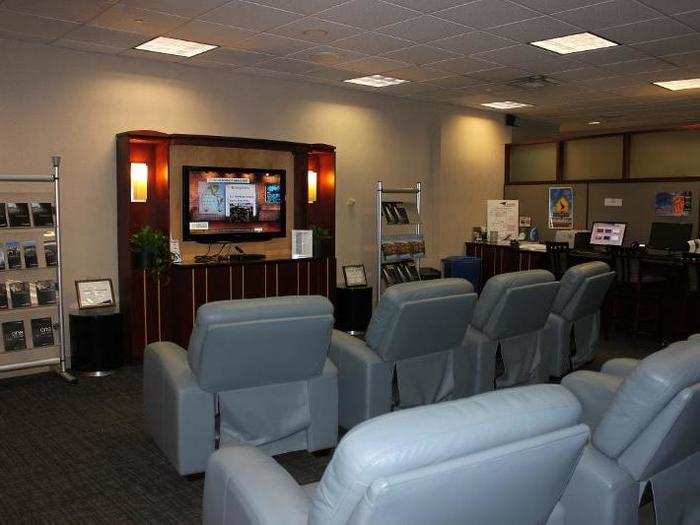
Just in case you forget that you're at an airport.

We stepped outside to hop on a shuttle that led us to ...

... our awaiting Gulfstream G550.

The $61.5 million G550 entered service in 2003 and was the company's flagship model until ...

... the introduction of the larger and more expensive $66.8 million G650 in 2012.
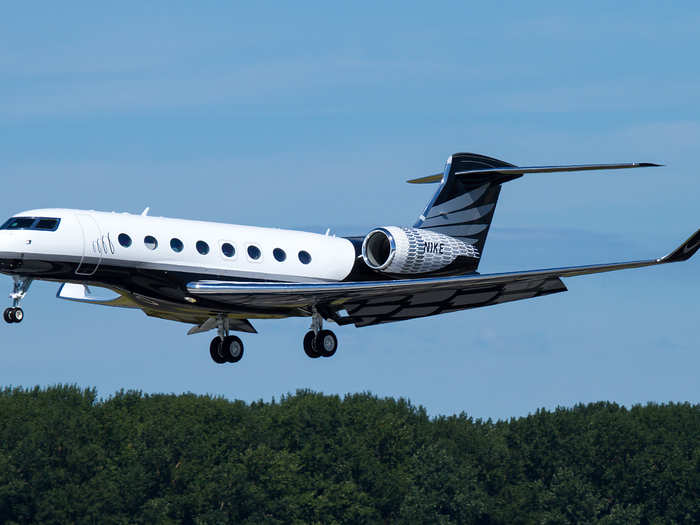
The G550 has a range of nearly 7,800 miles and reaches a maximum altitude of 51,000 feet.

It's powered by a pair of Rolls-Royce BR710 turbofan engines — each producing up to 15,385 pounds of thrust.

The G550's rivals include the Embraer Lineage 1000 from Brazil and ...
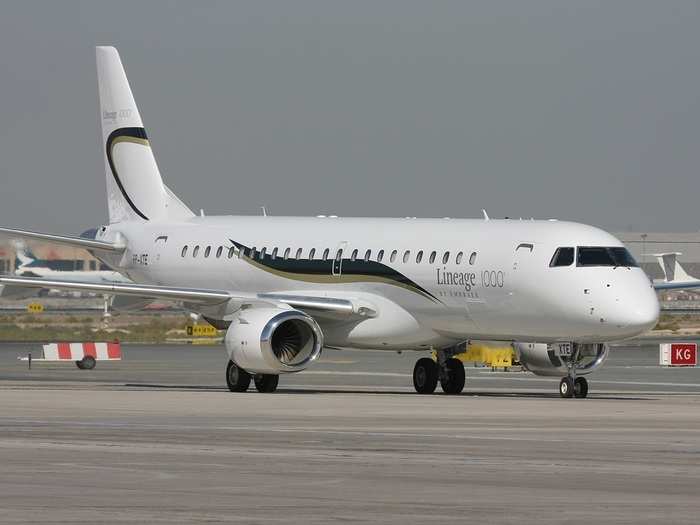
... Canada's Bombardier Global 6000.

Once onboard, we prepared for takeoff.
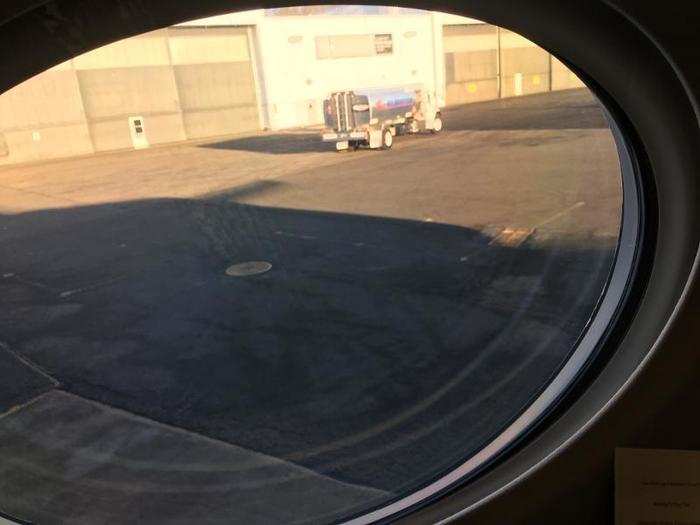
We taxied past other Gulfstream jets on the way to the runway.

Takeoff time!

The G550's Rolls-Royce turbofans spooled up quickly, and we were soon off the ground. The Gulfstream bolted down the runway like a hot-rod down a drag strip. This is acceleration unlike anything I've experience before in a car or on a plane.

Here's Newark Liberty International Airport.

The jet quickly reached our cruising altitude of more than 30,000 feet.
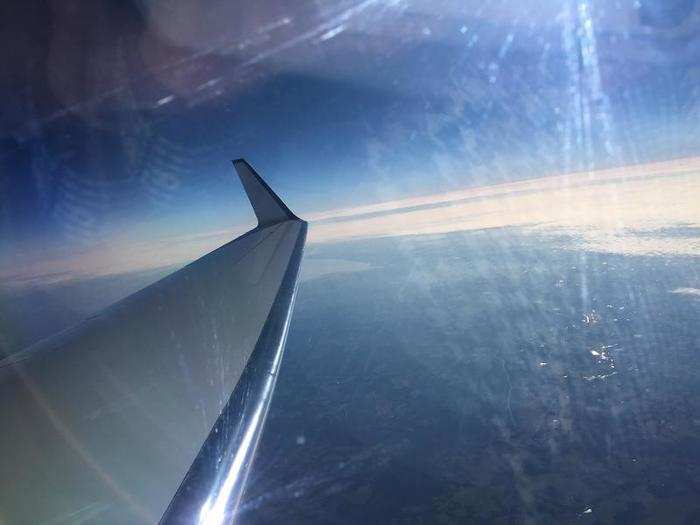
At cruising altitude, the Gulfstream was Rolls-Royce quiet. The only noise in the cabin came from the passengers.

The G550's spacious cabin can seat up to 19 passengers or offer sleeping accommodations for up to eight. But our plane was set up to sit around 13 passengers in three different sections.
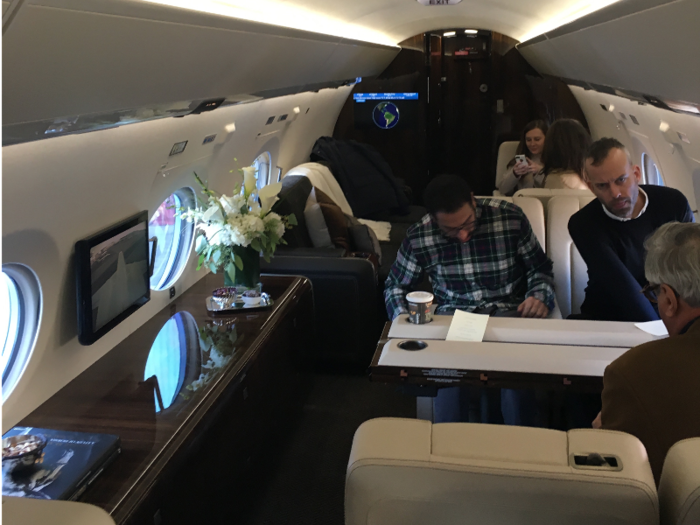
This includes a lounge section up front, a conference table in the middle section of the plane, and a divan in the aft portion.
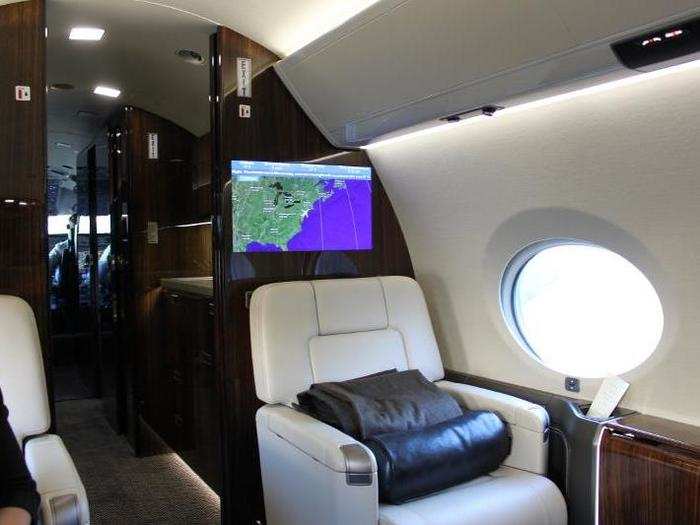
Across from the conference table is a large credenza with a wall-mounted flat-screen.
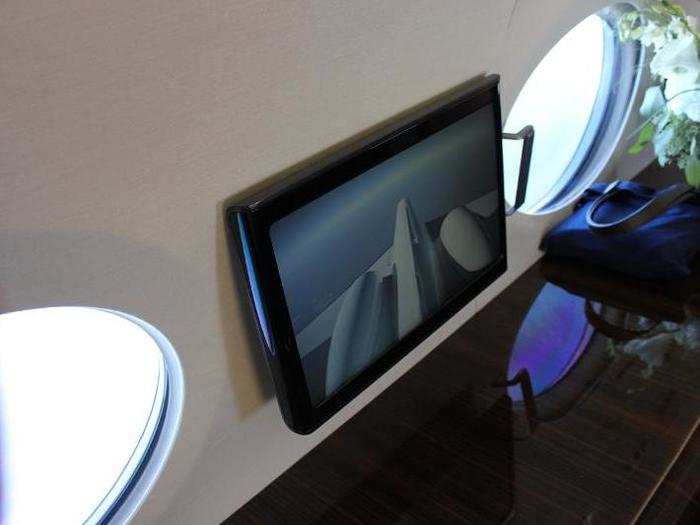
The plane's galley and forward lavatory are between the main cabin and the cockpit.
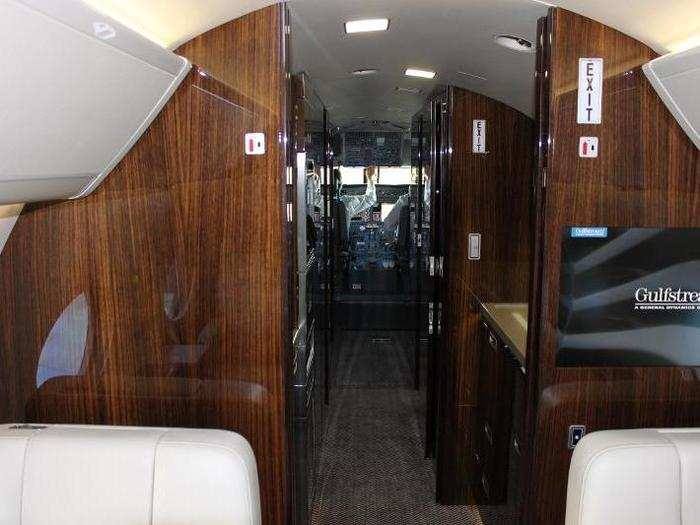
The main cabin is separated from the crew area of the aircraft by a bulkhead and wood-veneer sliding door. The veneer found for our jet came from one wood log. The company even keeps spare pieces of the log around in case repairs are required in the future.
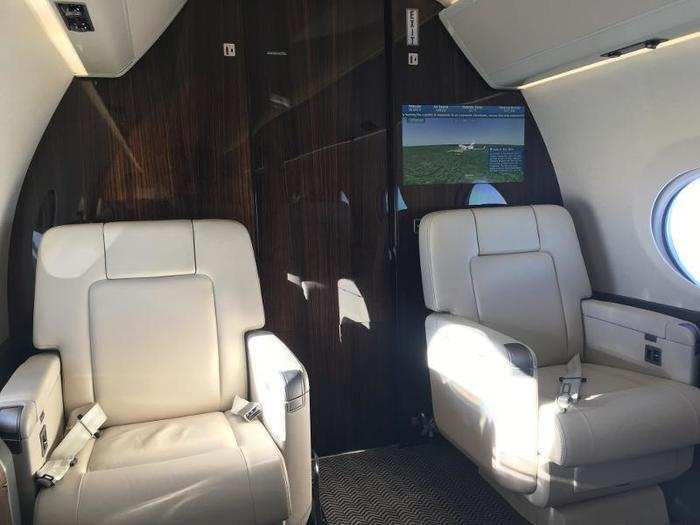
The G550's seats are incredibly comfortable. They're soft and supportive without giving you the feeling that you're sinking into them like a La-Z-Boy. Every piece of leather used to upholster the jet's interior is inspected in great detail, and even tiny blemishes are removed.
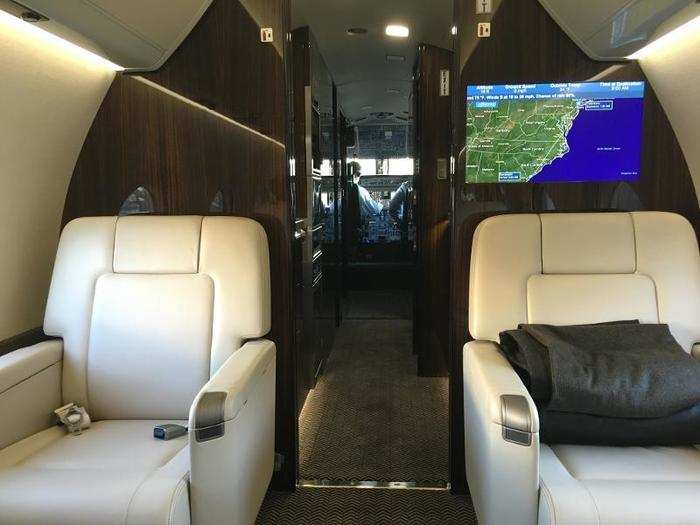
At every seat is a personal audio/video display.
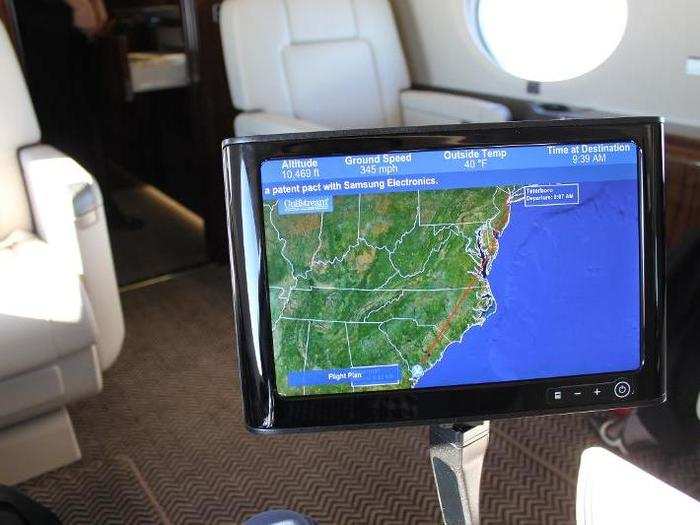
Some settings can be controlled through an iPhone app.

This includes control of the window shades ...

... the climate ...
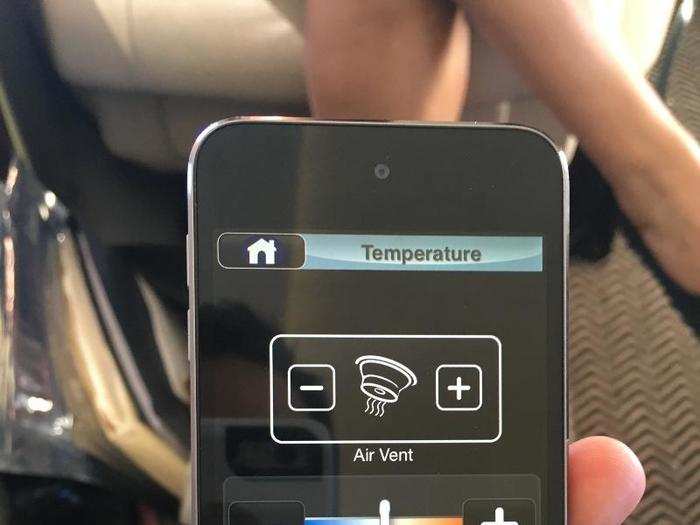
... the entertainment playing on each screen and speaker, as well as ...
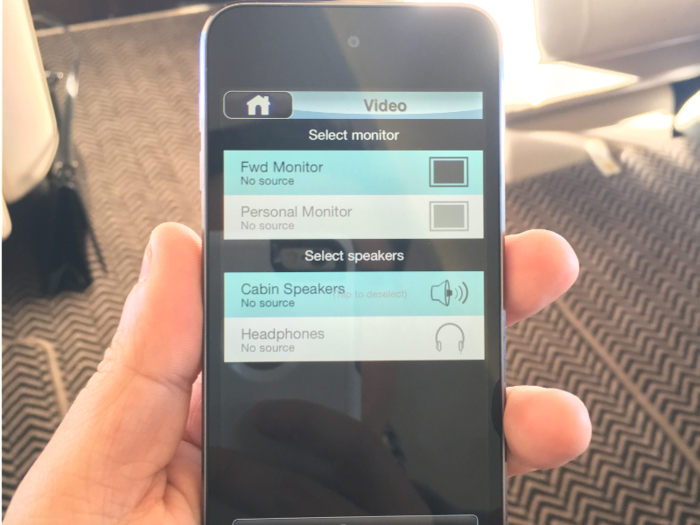
... flight information.
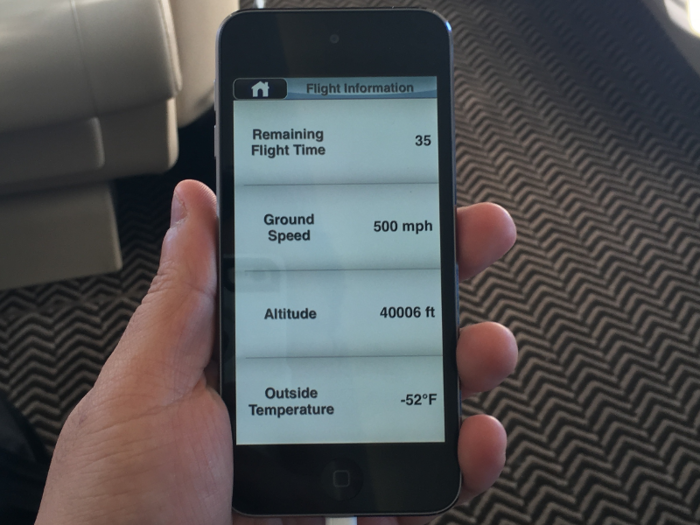
We were served a nice breakfast on our trip down to the Peach State. The galleys on board these jets are tailored to fit the needs of the customer, so everything from espresso makers to rice cookers can be optioned.

I took some time just to look out the window. What a view!
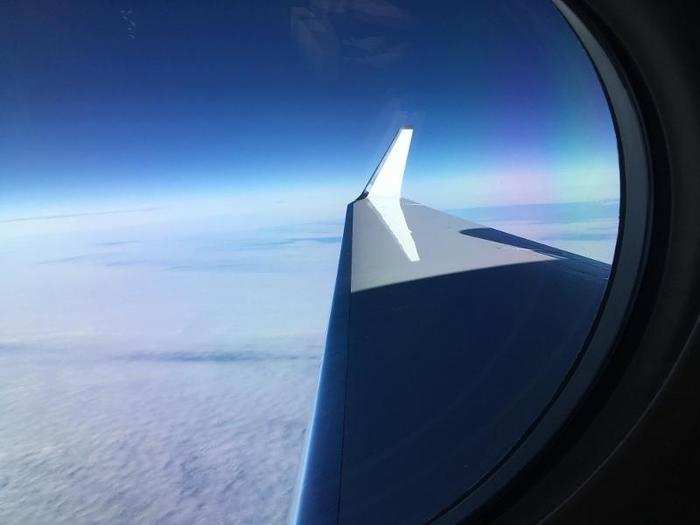
In the cockpit, the sizable G550 requires two pilots to operate. Small business jets such as the HondaJet can fly with just one pilot.
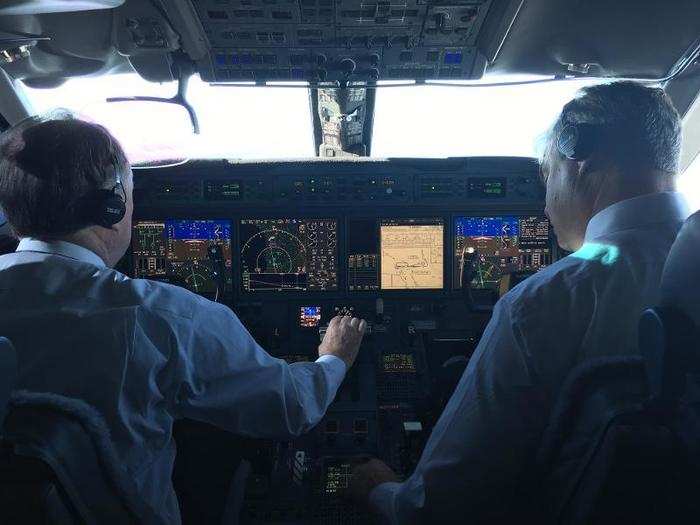
The G550 features Gulfstream's PlaneView avionics system, which was developed in conjunction with Honeywell. The cockpit features four large LCD instrument readouts.

Our flight to Savannah took less than two hours.
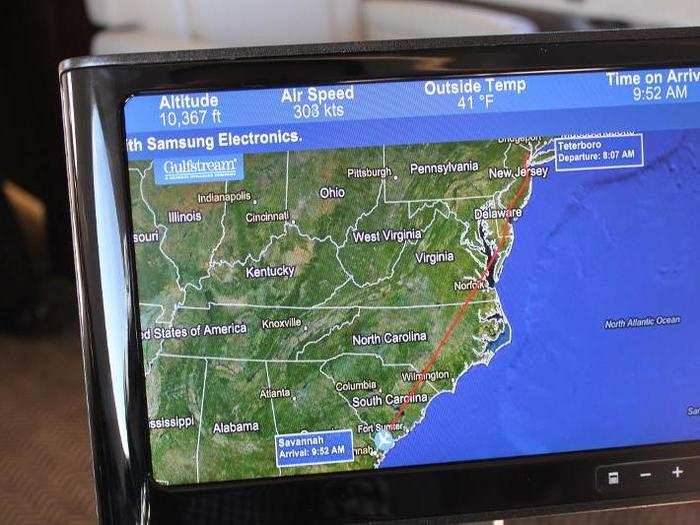
Our destination was Gulfstream's headquarters at Savannah/Hilton Head International Airport.

After landing, our jet pulled up right to the front door of Gulfstream's customer center.

They even rolled out the red carpet!
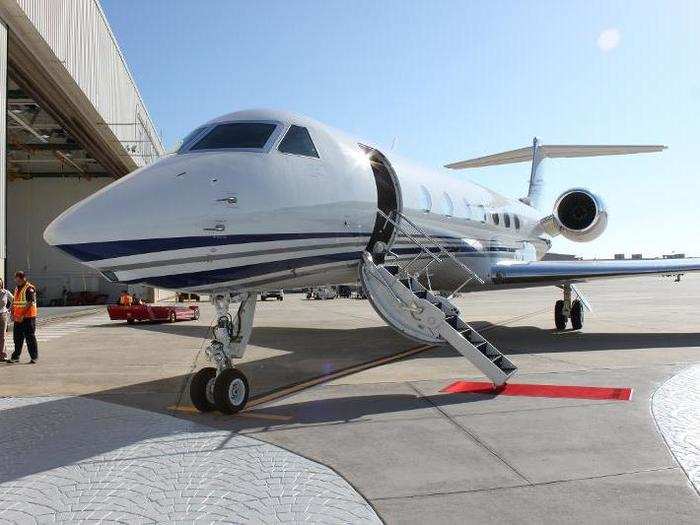
In Savannah, we met with the company's executives and got a peek at the dizzying array of interior materials on offer, courtesy of the Gulfstream's head of interior design, Tray Crow.

I also took a tour of Gulfstream's G450/G550 production facility, where the company is working away at its $13 billion backlog of orders.
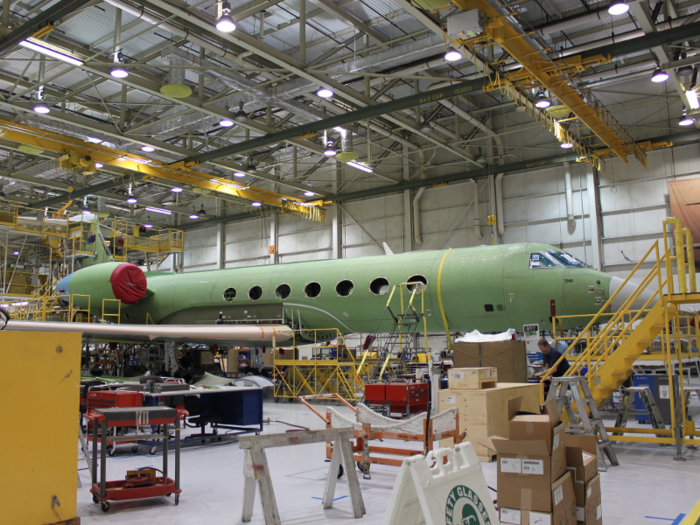
Finally, we got a chance to check out a mock-up of Gulfstream's next generation, the G600.
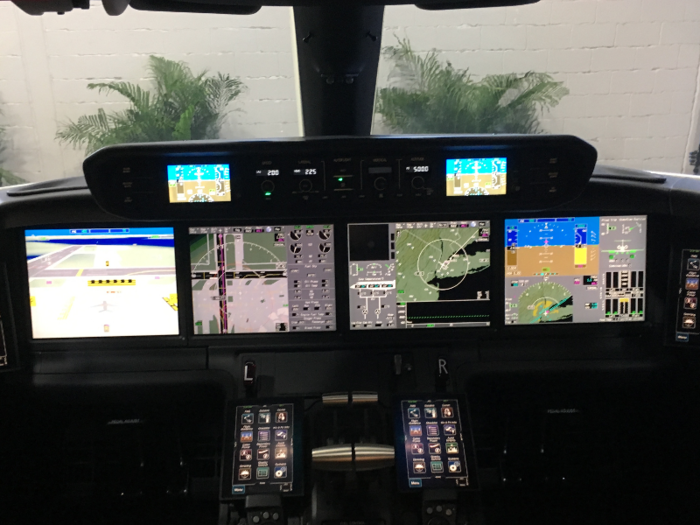
All the while, our G550 was getting refueled and prepped for our trip back to New Jersey.

At the end of a long day, we hopped back on the jet for the trip home.
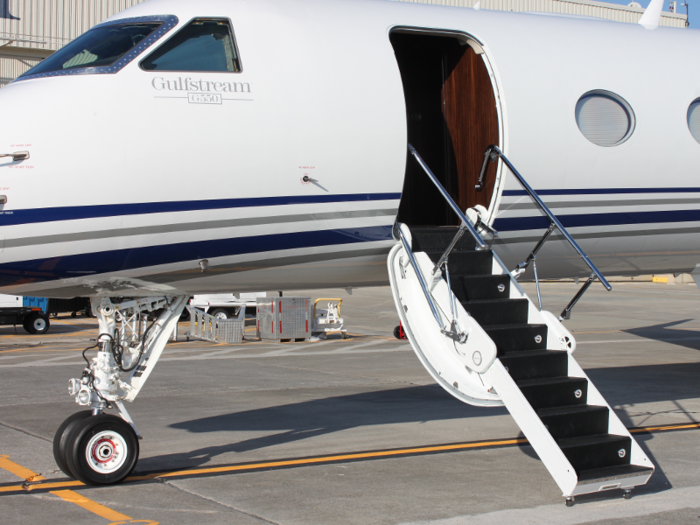
Parked next to the G550 was Gulfstream's maintenance jet, used to quickly dispatch parts and mechanics to far-flung destinations.

We were served a light dinner.

I spent the flight back checking out some of the plane's in-flight entertainment features. The flight maps include fun facts about the places over which we were flying.
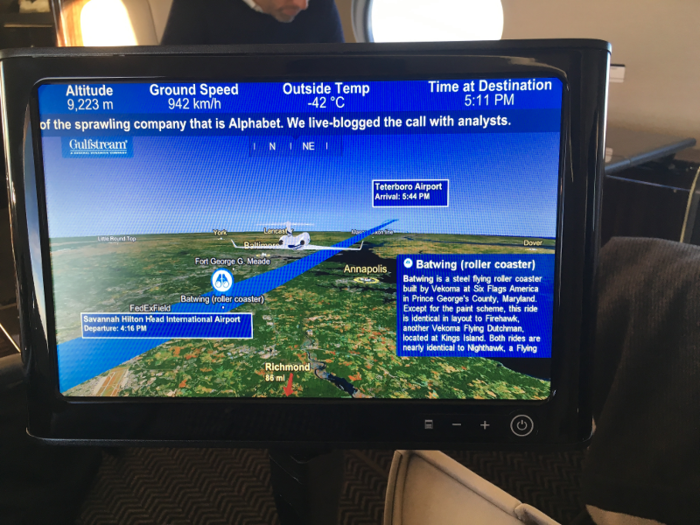
After a relatively short flight back, we landed at dusk in New Jersey.
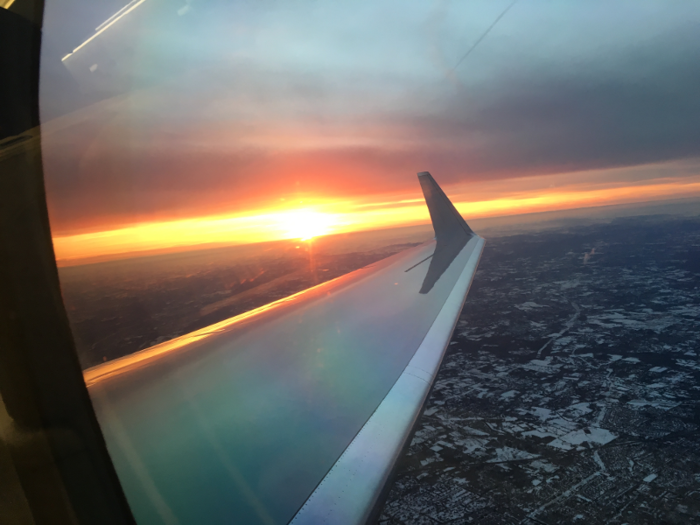
Before this trip, I knew that flying in a private jet was pleasant and convenient, but I didn't expect it to be quite this amazing. The large private jet can essentially be anything you want it to be — from flying office to hotel room to night club. It makes flying first class seem a bit ... boring. But with a $61.5 million price tag, the Gulfstream experience is exactly what you pay for.

Popular Right Now
Popular Keywords
Advertisement